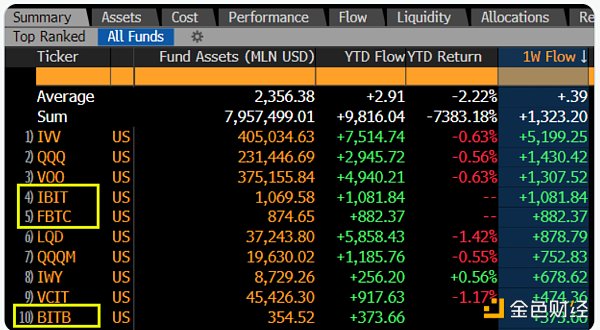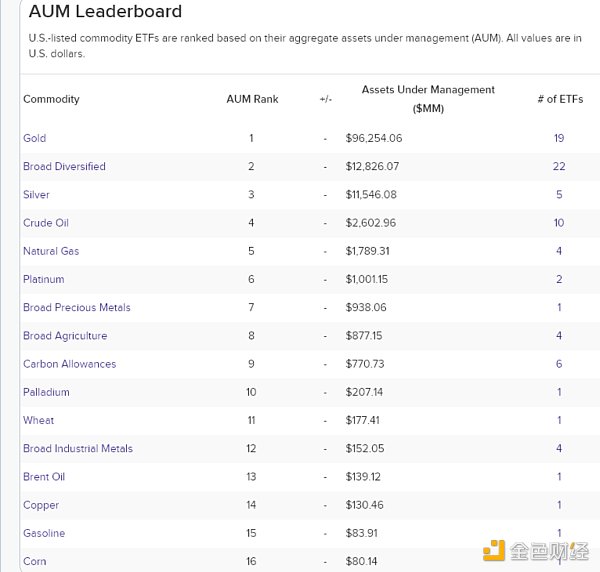Author: Marcel Pechman, cointelegraph Translation: Shan Oppa, Golden Finance
The Bitcoin spot ETF has made headlines with media reports of $2.8 billion in assets under management, but how significant is this number?
Spot Bitcoin's surge in exchange-traded funds (ETFs) has become the focus of financial markets, fueling speculation about its potential to surpass traditional assets such as gold. ETFs can be easily bought and sold on regular stock exchanges, simplifying the process of trading Bitcoin using a standard brokerage account for everyday investors.
Another benefit is that these vehicles are subject to regulatory oversight, breaking down barriers that previously prevented mutual funds and professional financial managers from directly holding and managing digital assets.
Spot ETF Bitcoin’s impact on the underlying spot market
ETF has a unique approach To maintain its price consistent with the value of the asset it represents, which involves a process called creation and redemption. This process plays a vital role in managing the number of ETF shares available in the market and ensuring that ETF prices closely track the value of the assets they represent.
Similar to the price of other items that can be bought and sold, the price of an ETF is affected by how much people want to buy it (demand) and how much people want to sell it (supply )Impact. Sometimes, demand for an ETF can be very high or very low, causing its price to deviate from the actual value of the assets it holds.
To prevent significant discrepancies between the price of an ETF and the value of its assets, the financial world has special participants called authorized participants. These participants can create or redeem ETF shares based on market demand. Creating new shares increases supply, while redeeming shares decreases supply. By doing so, they can help control ETF prices and avoid significant deviations from the true value of the assets they represent.
Spot Bitcoin ETF trading volume exceeded expectations
Bitcoin ETF spot trading in January Starting on the 11th, these products accumulated a record trading volume of US$14 billion in the first five days, a feat unmatched by other commodity ETFs.

Sponsored Business Content
p>
As Bloomberg Senior ETF Analyst Eric Balchunas highlighted, the only asset class surpassing Bitcoin in terms of trading volume is tracking the S&P 500 or Nasdaq 100 index asset class. To put things in perspective, the U.S. stock market has a market capitalization of $52 trillion, more than 60 times Bitcoin’s $810 billion.
More importantly, the Bitcoin spot ETF issuer’s total assets under management (AUM) reached $2.8 billion, surpassing silver, crude oil and broadly diversified commodities The sum total leaves gold as the only remaining competitor.
An article published by CryptoSlate chief analyst James Van Straten on X (formerly Twitter) described the precious metal gold as the absolute leader in the commodity field. Gold worth $96 billion is held under ETF instruments.

p>
However, the asset management scale of Bitcoin ETF currently accounts for only 3.5% of Bitcoin’s current market value. By comparison, even excluding 63% of gold's AUM for jewelry, coins, electronics and other applications, its ETF industry accounts for just 2% of gold's remaining $5 trillion market capitalization.
Gold is not the only direct competitor in the ETF industry
Although the growth of Bitcoin ETFs That's outpacing the growth of commodity ETFs, but the bond market tells a different story, with global assets under management reaching an impressive $2 trillion. Likewise, the S&P 500 ETF industry has more than $1 trillion in assets under management, underscoring the enduring appeal of traditional stocks.
While the market capitalization of Bitcoin ETFs has not yet surpassed that of gold, recent growth suggests a compelling story. Comparisons with commodities such as oil, silver and gold highlight Bitcoin’s growing influence as a legitimate asset class.
As Bitcoin matures, its potential to exceed $1 trillion in market capitalization becomes increasingly likely, confirming its role as a transformative force in finance status.
 JinseFinance
JinseFinance










